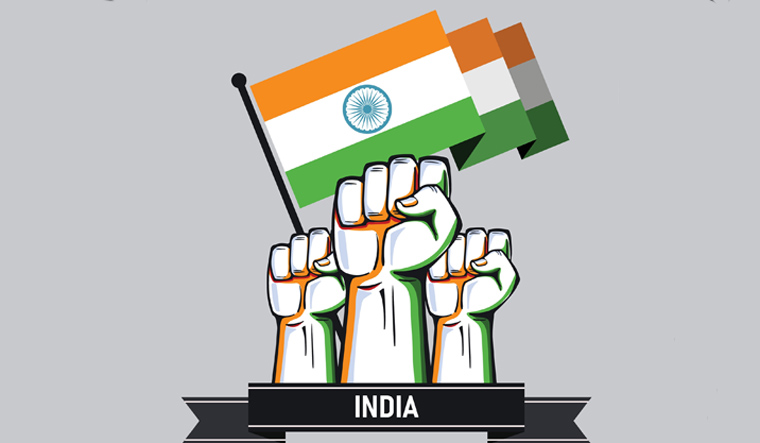In an earlier article I have mentioned that India's real and massive problems cannot be solved within the present political and constitutional system and by the electoral process but by a people's revolution.
I have also said historical experience shows that before every actual revolution there is always a long period of ideological revolution.
In this period of ideological revolution there is a clash of ideas, practices and values — the old conservative and conventional ones, e.g. feudal thinking and practices —clashing with the newly emerging ones. What was regarded good earlier by the old feudal order (e.g. caste system and religion) is often regarded backward, outdated and even evil by the enlightened sections of society. As Shakespeare said in Hamlet, “Fair is foul, and foul is fair;” good has become bad, and bad has become good. Everything becomes topsy-turvy, and there is tremendous social churning.
We are now passing through the period of ideological revolution, and the actual revolution is still far off. It is useful therefore to consider some features of the Indian ideological revolution:
1. The primary weapons used in this period will not be guns, bombs or swords, but ideas. The Indian people, the vast majority of whom are mentally backward and are steeped in casteism and communalism, have to be patiently educated by the small, enlightened section of society, and their backward feudal mindsets changed gradually, replacing them with modern, scientific mindsets. This will not be an easy task, and will in fact be met for a long time with fierce resistance and even violence by the orthodox, backward, feudal-minded people (who are in the vast majority and do not want to change their feudal reactionary ideas and practices). Nevertheless, the job has to be done, and there are no doubt many patriotic individuals among the enlightened section of society who will come forward and do it.
Intellectuals are the eyes of society, and without them society is blind. Intellectuals have to give leadership to the people, but unfortunately most so called 'intellectuals' in India are in fact pseudo-intellectuals. They have superficial, half-baked, bookish knowledge, but with huge egos and arrogance, and strut around the social scene like peacocks, displaying their shallow knowledge. It is genuine intellectuals India needs, not these fakes.
2. After a certain period has expired in the ideological struggle, the need will be felt by the patriotic section for organising a political party of those who genuinely want India to come out of poverty, unemployment, malnutrition, and lack of healthcare and good education. As is well known, the present Indian politicians, of all parties, only seek power and pelf, and have no genuine love for the country or the people's welfare, and they polarise society on caste and communal lines, to get votes.
Individual effort, which though no doubt was very valuable at the early stage of the ideological struggle, will later be found insufficient to take the struggle further forward.
How an enlightened political organisation will be created, and how much time that will take, is impossible to predict. One cannot be rigid about historical forms. But its leaders, whoever emerge as such, must have the following qualities:
a) they must have modern, secular, scientific minds
b) they must be enthused with patriotism and selflessness, which is essential, for they, too, apart from the people they lead, will have to make great sacrifices
c) they must lead frugal personal lives, for how can they call upon the people to make great sacrifices (as they have to if the struggle is to succeed) when they themselves live cozy, comfortable lives?
3. Still later, towards the end of this period of pure ideological struggle, and just before the beginning of the actual revolution, a section of the armed forces of the country will come over to the side of the people (who are being led by the party of patriots), as it happened at the time of the English, French, Russian and Chinese Revolutions.
Justice Markandey Katju retired from the Supreme Court in 2011.
The opinions expressed in this article are those of the author and do not purport to reflect the opinions or views of THE WEEK.



